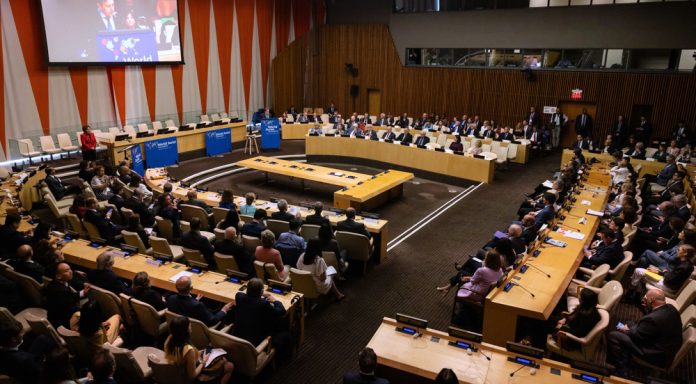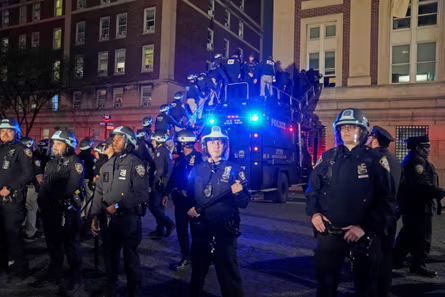A US lawmaker has denounced a congressional decision to reject a draft bill that would have neutralized what he called “tyrannical” presidential emergency powers that would have allowed the president to wage war on nations throughout West Asia.
According to a report on Thursday from the US-based Grayzone news website, a small group of Republican members of Congress, led by Representative Paul Gosar of Arizona, protested against 41 fictitious “national emergency” declarations, many of which are decades old.
The 148 national emergency powers that are at the president’s disposal have been dubbed “tyrannical” by Gosar. There are currently 41 declared national emergencies, the earliest of which dates back to 1979, he said.
Gosar wrote, “No president, regardless of party, should be given a blank check and limitless special powers that can be used to sidestep the regular democratic process, exceed their constitutional authority, and violate the balance of power.
On July 18, the House rejected five resolutions that would have ended the national emergency powers that date back to 2003. The five resolutions have an impact on the Congo, Yemen, Libya, Syria, and Iraq, among other nations.
Pro-war Democrats and Republicans joined forces in resounding support for the executive branch’s emergency powers on each vote.
Among the emergency declarations still in force are those authorizing war on Libya on the pretext that Muammar Ghaddafi posed an immediate threat to the US, one enabling economic warfare on Syria on the false pretext that Damascus sponsors international terrorism, and one enabling the president to support Saudi Arabia’s military assault on Yemen, which led to the worst humanitarian catastrophe in history.
The US government has the legal right to test biological weapons on American citizens thanks to yet another emergency declaration.
It’s unfortunate that we are present for these five emergency measures, said Rep. There will be 36 more coming your way, Gosar warned on the House floor.”
“National emergencies are supposed to be uncommon and brief,” Gosar continued. The National Emergencies Act was passed by Congress in 1976, but it was not intended for the executive to use declarations to impose sanctions for many years. Congress has the authority to take that action without first declaring a national emergency.”
Congress is required by law to review national emergency declarations every six months, but none of the five in question have ever been the subject of a review. Boebert stated on the floor that 31 reviews of the national emergency relating to the Congo should have taken place in the 16 years since it was declared.
The resolution to end the Iraqi national emergency, which was declared only a few months after the US invasion in 2003, was sponsored by Iraq War veteran Eli Crane. At that time, the U. S. was ostensibly on a mission to find mythical weapons of mass destruction.
The declaration has drawn heavy criticism for providing “a guarantee of immunity from prosecution for white-collar and corporate crimes that involve Iraqi oil” and for exerting neocolonial control over the country’s oil sector. The Biden administration extended the national emergency power in May.
representatives Gosar and Rep. The resolution to end Syria’s emergency powers was co-sponsored by Matt Gaetz. This declaration was made possible by an executive order from 2004 that imposed sanctions because Damascus was “supporting terrorism,” “pursuing weapons of mass destruction and missile programs, and undermining US and international efforts with respect to the stabilization and reconstruction of Iraq.”
The sanctions act was extended in May by the Biden administration. This time, the administration’s economic attack was justified by Syria’s alleged “chemical weapons and supporting terrorist organizations,” which “pose an unusual and extraordinary threat to the national security, foreign policy, and economy of the United States.”
Gaetz described the five national emergency declarations covered by the resolutions as “dormant slush funds spending untold sums of money with no transparency as to how much is going into the ‘Syrian emergency.’ This was said on the House floor.
The national emergencies in Yemen and Libya were the main topics of Gosar’s resolutions. He noted that an estimated 130 Yemeni children die from famine every day in a recent press release, saying, “Heartlessly, the extended national emergency related to Yemen blocks the donations of food, clothing, and medicine intended to relieve the human suffering by the people of Yemen.”
“It is unbelievable that our nation would use a declared ’emergency’ to cause suffering, including starvation and disease, for the citizens of another nation.”
Gosar noted in a separate press release on his resolution on Libyan emergency powers that it was “almost hilarious” that Muammar Qaddafi was still cited as the reason for the emergency declaration despite the fact that he had been dead for nearly 12 years. These things are unimaginable.”
The congressman continued, “Libya has never posed a military or economic threat to the United States since 2011.” “The citizens of Libya deserve the freedom to live their lives as they see fit, free from the threat of U.S. S. bombings, assaults, or “color revolutions” that corrupt and errant American agencies—none of which are acting with congressional authorization—have forced upon them.”
As Washington erupted over Damascus’s return to the Arab League after more than a decade, US President Joe Biden extended the national emergency declared with regard to Syria by another year in May.
According to Biden’s decision, the US national emergency on Syria will last until May 2024.
In May 2004, the president at the time, George W. Executive Order 13338, which Bush signed, declared the actions of the Syrian government to be a national emergency. Using fictitious justifications, succeeding presidents continued to extend the classification every year.












